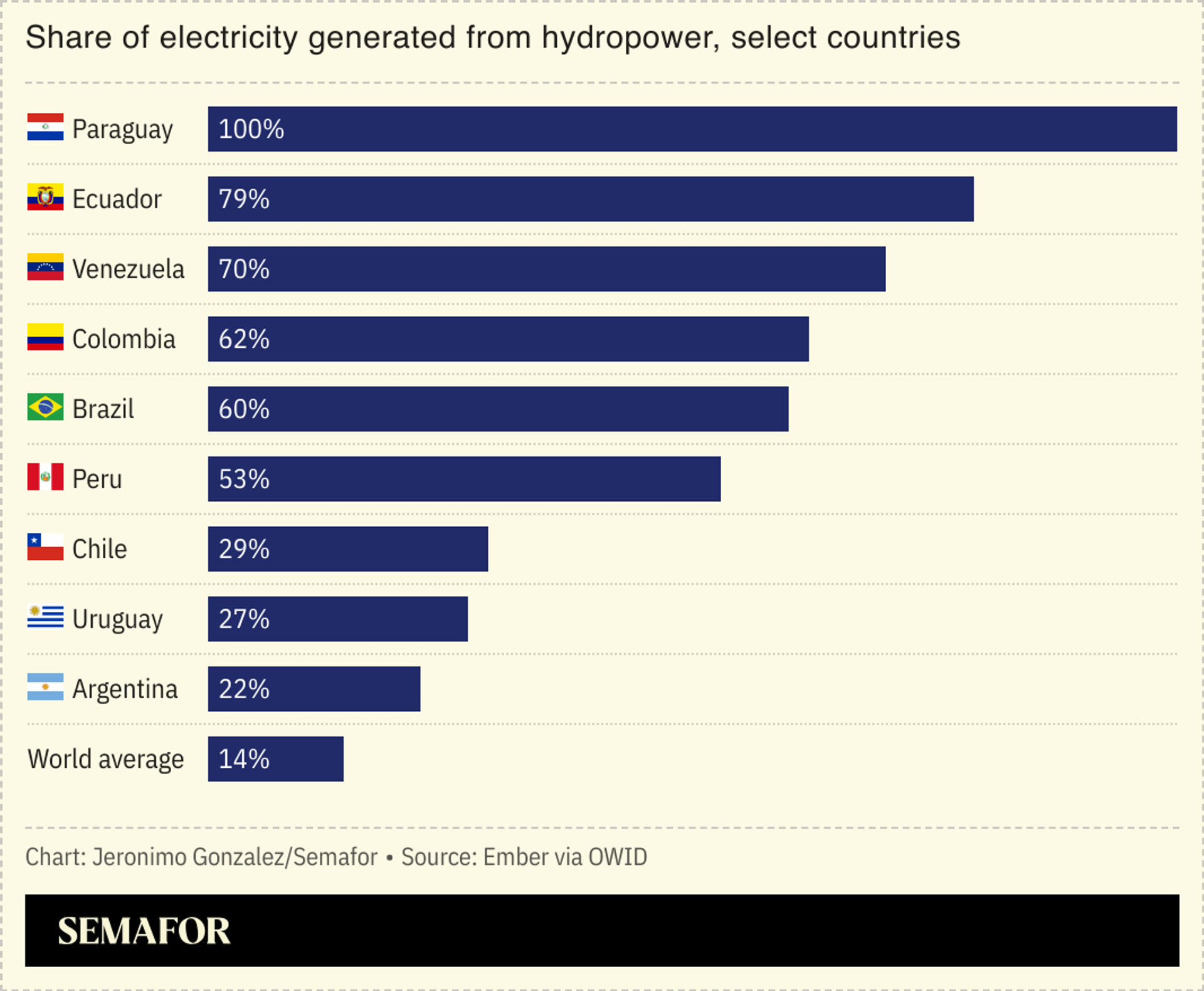The News
Ecuador’s presidential election will go to a run-off, with crime and climate emerging as defining factors on the ballot as twin security and power crises roil the country. In the first round of voting Sunday, socialist opposition candidate Luisa González performed strongly, with the incumbent President Daniel Noboa beating her by less than 1% with a majority of votes counted, the head of the national electoral council said.
Ecuador’s constitution requires a candidate to win more than 50% of the vote to secure the presidency — before the ballot, polls had predicted a clear Noboa win. A run-off is likely to be set for April 13.
Ecuador’s homicide rate more than tripled between 2021 and 2023 — although it dropped slightly last year, according to government figures — while the country in 2024 became the world’s largest cocaine exporter, according to the Atlantic Council.

SIGNALS
Ecuadorians mull fresh ideas to tackle security crisis
In power for just 14 months, Ecuador’s incumbent Daniel Noboa took cues from neighboring El Salvador’s President Nayib Bukele, declaring states of emergency, deploying the military, and building massive prisons in a bid to combat the country’s security crisis, but it wasn’t enough to convince voters: “These challenges require systemic reforms,” the Atlantic Council wrote. Leftist opposition Luisa González, by contrast, offered a vision more similar to the successful campaign promises of Mexico’s Claudia Sheinbaum, marrying greater social welfare with security: “We are going to exchange violence for peace,” González said last week ahead of Sunday’s ballot.
Climate change fast becoming a political risk for Latin America
Ecuador’s security issues aside, President Daniel Noboa’s popularity plunged amid the country’s intractable energy crisis that has been marked by rolling blackouts. Ecuador experienced an unprecedented drought between 2023-2024 and relies heavily on hydroelectricity — resulting in an estimated cost of around $12 million per hour of blackout, according to the Guayaquil Chamber of Commerce. González used the issue as ammunition against Noboa, while he blamed the previous administration’s lack of investment in the energy grid, Foreign Policy wrote. “Climate change is not a new issue, but 2024 was the year it seemed to ‘graduate’ to become a major political and economic risk in Latin America,” Americas Quarterly wrote.
Stamp of ‘Correismo’ gives González a nostalgia advantage
With many world elections in the last year marked by anti-incumbency sentiment, Ecuador is somewhat of an outlier. In many nations, economic distress and an “overall sense of frustration with political elites” have driven out traditional ruling blocs, a Pew researcher told The Associated Press. In Ecuador’s case, President Daniel Noboa — in power since 2023 — is still seen as the fresh face, analysts noted. Meanwhile, González is seen as the successor to former President Raphael Correa, who led the country during a time when Ecuador’s economy seemed more stable and violence wasn’t as big an issue. “Honestly, Correismo [Correa’s political movement] could put anyone on the ballot,” one political analyst aligned with Noboa told Foreign Policy.

